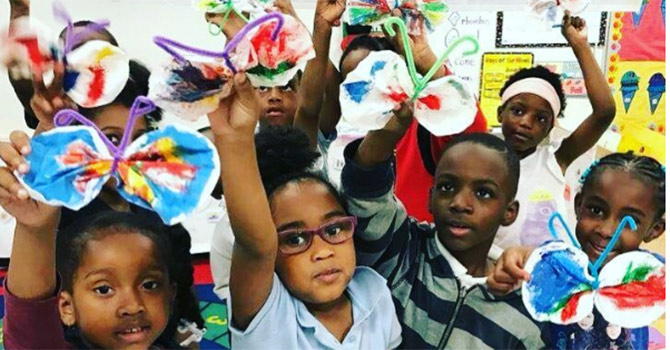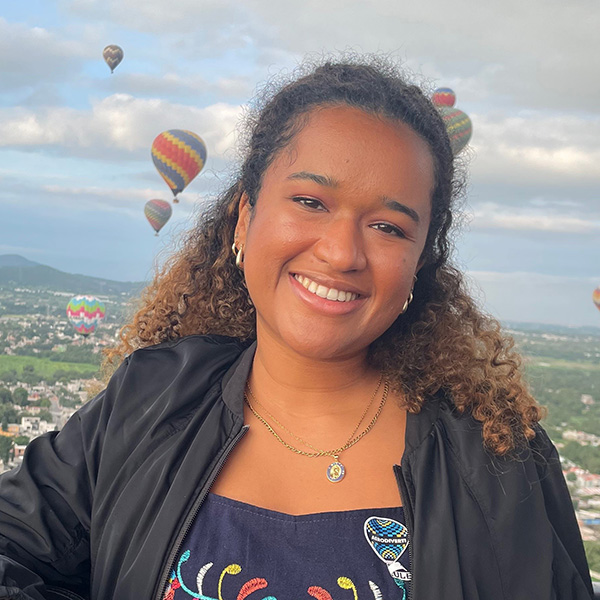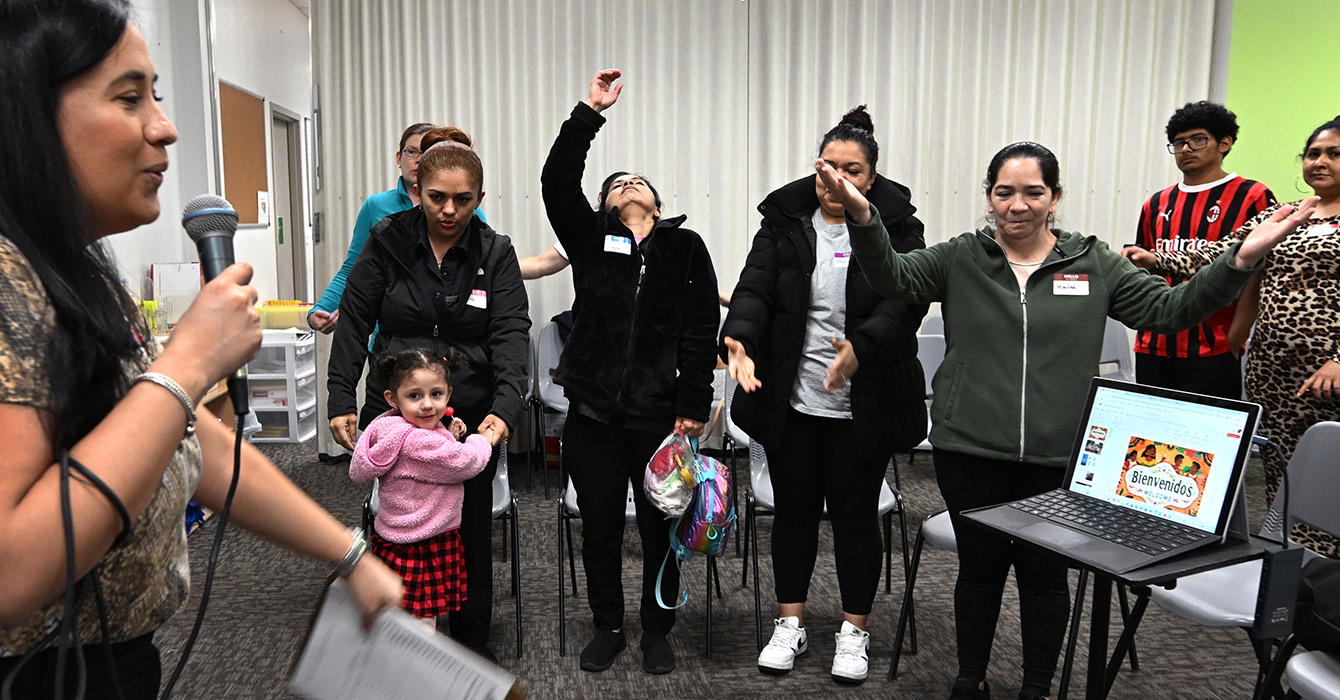“Soar more, struggle less.”
Sounds like a snappy tag line for a drone company, but it’s actually the motto for WINGS for Kids, a nonprofit focused on developing and improving children’s social and emotional intelligence through after-school programming.
Based in Charleston, South Carolina, WINGS for Kids serves more than 1,100 at-risk kids in nine schools in South Carolina, Georgia and North Carolina.
One of those is Raven, a third-grader at Chicora Elementary, which serves one of the highest-poverty areas in Greater Charleston. On a hot Thursday afternoon this fall, Raven was fidgety and feisty after a long day at Chicora, where 85 percent of students qualify for the National School Lunch Program.
Raven has attended WINGS for Kids since kindergarten. Most days, she loves spending her afternoons with her WINGS leaders and friends. But today, not so much.
Today, she repeatedly disrupts her “nest” (a WINGS small group of 10 to 12 kids), pouting and grumbling every time she hears something she doesn’t like. But instead of reprimanding her, Kendyl Davis, her WINGS leader and a College of Charleston undergraduate, asks Raven to identify the emotion she might be feeling.
“Angry and frustrated,” Raven huffs, cutting her dark brown eyes sharply and jutting out her chin.
Kendyl gives her a high-five for being able to say how she is feeling, and they talk briefly about why she is frustrated and what other emotions she might be having. Kendyl isn’t simply trying to defuse or contain a group distraction; she is zeroing in on a teachable moment about self-awareness, one of the core competencies of social and emotional learning (SEL) that form the basis of the WINGS curriculum.
A missing piece
WINGS for Kids is founded on the belief that all children need more than book smarts and academic achievement to be successful. One of the most important pieces, often missing for kids growing up in low-income, high-stress, high-trauma environments (Chicora is the most crime-ridden neighborhood in North Charleston, which last year had the eighth-highest murder rate in the nation), is social and emotional intelligence.

Three hours a day, five days a week, WINGS after-school programs help kids navigate challenging circumstances that are often out of their control. The organization teaches them the soft skills of social and emotional learning that will help them make good decisions and build healthy relationships: self-awareness (as Kendyl was teaching Raven), self-management, social awareness, relationship skills, and taking responsibility for your own decisions.
These skills track the five core competencies identified by the Collaborative for Academic, Social, and Emotional Learning (CASEL), a leading SEL research and advocacy organization, which defines social and emotional learning as “the process through which children and adults acquire and effectively apply the knowledge, attitudes, and skills necessary to understand and manage emotions, set and achieve positive goals, feel and show empathy for others, establish and maintain positive relationships, and make responsible decisions.”
The concept of social and emotional learning reflects a growing understanding in educational circles -- backed by research and heralded by the Bill & Melinda Gates Foundation and CASEL, among others -- that social and emotional skills are as important for long-term success as academic skills. As the Gates Foundation website puts it, “You can’t separate the two; a student’s emotional and social well-being is a critical aspect of their ability to master and retain academic learning.”

That philosophy is at the center of WINGS’ work, said Nicole Lovecchio, the organization’s chief program officer.
“Our mission is to equip at-risk kids with the social and emotional skills to succeed in school, stay in school and thrive in life,” she said.
Throughout her 16 years with WINGS, Lovecchio has constantly refined the WINGS curriculum through a process of trial and error, eventually arriving at the five core SEL competencies. The organization ties the teaching of those skills to tangible ways to manage the children’s behavior proactively. The approach may not help kids overcome all their challenges, but it can have a real impact.
How and in what specific ways does your church or organization make a difference?
“We realize we’re not getting these kids out of the communities they’re raised in, but if 1 in 10 ends up getting a full-time job or goes to college, then we’re making a difference,” she said. “If a kid who comes to us punching everyone every day turns into one who only gets in five fights a year, well, that’s a success.”
Off the ground
WINGS was founded in 1996 by Ginny Deerin, a Charleston-area civic leader who had a passion for helping youth, especially young girls, become successful leaders, along with a gut sense that schools defined “success” too narrowly. At the time, the term “social and emotional learning” wasn’t yet in her lexicon, but Deerin knew that academic achievement required more than book smarts. She had a dream sparked by a simple question: What would it look like if we could teach girls to be joyful, powerful and responsible?
How would your church or organization complete the question, “What would it look like if. . . .?”
Deerin set up shop in the basement of her Sullivan’s Island home and began digging into research. She initially launched WINGS as a girls summer camp program operating on a shoestring budget. After a year, Deerin hired her first employee, Bridget Laird, a recent graduate of North Carolina State University who had played on the school’s women’s soccer team. Initially hired as an assistant to help run the summer camp, Laird is now the CEO of WINGS.
When new research in the late ’90s found that SEL programs could be more effective if taught in shorter, more frequent intervals, Deerin and Laird changed their approach. Dropping the summer camp, WINGS became an after-school program at Charleston’s Memminger Elementary School, targeting boys and girls in lower-income families.
“When we opened the doors, we only half knew what we were doing,” Laird said in a 2014 magazine article.
At first, they were surprised by the children’s behavior and weren’t sure how to address it. The kids were often aggressive and reactive, easily provoked and prone to shutting down completely.
Deerin and Laird knew intuitively that skills such as empathy and responsibility would be invaluable to the children. But they didn’t have an evidence-based curriculum to teach those skills, much less a guide for doing so in a scalable and measurable way. So they embarked on a trial-and-error experiment, in essence mirroring the five core SEL skills for the children.
WINGS in action
A typical day at WINGS begins as soon as the official school day ends. To help ease the transition from classroom to their WINGS nests, the children’s afternoon starts with a “Community Unity” session featuring fun activities, snacks and a general check-in with one another. Together, the kids and leaders recite the cheerful singsong WINGS Creed, often embellished with hand motions and the occasional hip shimmy. The Community Unity activities are planned around 10 learning objectives that draw upon the SEL core competencies.

Next, the kids let out some energy with free play and then participate in Enrichment Time, where they are introduced to yoga, lacrosse and other activities they might not otherwise have a chance to explore.
Fourth-graders can also take part in Kindred Kids, a recent WINGS program created in response to the 2015 shootings at Charleston’s Emanuel AME Church. Kindred Kids helps the children learn empathy by pairing them with peers in more affluent, mostly white schools. The paired students get to know one another, first as pen pals and then in person, embracing diversity and bridging the divides wrought by largely segregated school environments.
The WINGS curriculum also includes time for academic enrichment. WINGS leaders help students with homework, and kids can circulate among various stations where they can reinforce their reading and language skills or their science, math and technology skills in tandem with the SEL lessons.
In addition to the schools it serves in the Southeast, WINGS has partnered with the Pomona Unified School District in California to train leaders there in the WINGS methodology and SEL curriculum so they can build their own program. It has also launched a pilot training program in Wyoming.
Over the years, WINGS leaders have learned that the best way to scale the organization is to build slowly and intentionally.
“We’re feeling things out, seeing where our curriculum and our methods are a good fit and who we can go deeper with,” Lovecchio said. “We don’t want to be spread too thinly. Our goal is to build up credibility, then see where it leads us.”
Leading by example
The organization’s culture of leadership has been a critical element in WINGS’ success, perhaps even more than any particular curriculum or program, Lovecchio said.
Describe your organization’s culture. How would you change it?
“We’ve discovered that WINGS is less about a checklist of things to teach; it’s about adults coming in and modeling self-awareness and self-responsibility,” she said. “Our culture and our climate, we believe, is more important than curriculum. A kid listens much more to your actions and attitude than what you say.”
WINGS invests a huge amount of time and resources in leadership development for the 108 WINGS leaders. The organization scrupulously screens applicants and hires college-age students the children can look up to, students who understand that being a WINGS leader is a serious commitment. Leaders go through an intensive 85-hour leadership training program and receive ongoing coaching. Stipends are funded through an AmeriCorps grant.
“Being a WINGS leader is not easy, and it’s not for everyone,” Lovecchio said. “Just because you want to work with kids doesn’t mean you can handle working with at-risk kids.”

Lovecchio oversees WINGS’ professional development and leadership training in a weeklong summer institute, where leaders learn about SEL, living in poverty, positive behavior techniques, building a supportive culture and other subjects. Each WINGS site also has an additional 40-hour training that covers program and curriculum logistics.
How does your organization invest in leadership development?
WINGS has learned that leadership development requires constant reinforcement and feedback, Lovecchio said. Before they can help kids build social and emotional skills, adults must first master those skills themselves. Because that is an ongoing process even for adults, a leadership coach is a key part of the WINGS team, identifying teachable moments for the staff, just as the leaders do with their kids.
“It all begins with a leader being willing and able to say, ‘Oops, I made a mistake’ and the lessons a kid learns by observing that,” Lovecchio said.
This culture of leadership is pervasive at WINGS. Only as adults build and enhance their own skills can they better create a supportive and engaging environment where kids can learn and soar, she said.
The intensive leadership training pays off in cultivating and retaining a talented staff with a high level of social and emotional intelligence. Lovecchio, Laird and most of the other 42 full-time WINGS staffers began as WINGS leaders.
Anna Holland Clark, a former WINGS leader and now a sixth-grade teacher in Beaufort County, South Carolina, credits WINGS for her passion and skill for working with at-risk students.
“I know WINGS changes kids’ lives, but it also permanently affects the lives of the WINGS leaders,” she said. “Though it was probably the hardest thing I’d ever done, it was completely worth the time, effort, tears and laughs.”
Flight patterns
Under its current three-year strategic plan, WINGS aims to expand its services to 16,000 kids, both in-school and after-school, using current as well as new models and program sites.
To do that, though, requires funding, which in turn requires quantitative data about the program’s effectiveness. Major funders to date have included the Edna McConnell Clark Foundation’s Social Innovation Fund, the George Lucas Family Foundation, and the 21st Century Community Learning Centers grant program, as well as AmeriCorps. From 2012 to 2016, WINGS was also part of a randomized controlled trial by University of Virginia researchers, funded by a $2.8 million U.S. Department of Education grant.
Although the final report is still in process, preliminary results indicate that WINGS reduced children’s negative behaviors and increased positive classroom behaviors, and that WINGS students demonstrated improved social interactions and better decision-making function, leading to less impulsive and more focused classroom behavior.

WINGS’ own data shows similar results. Overall, WINGS found that 87 percent of its kids received average or higher grades for classroom behavior; 96 percent had school attendance rates of 90 percent or higher; and WINGS students’ high school graduation rates were 40 percent higher than a comparison group at the same school.
But SEL, by definition, is hard to articulate. It’s not a 1+1 equation or a question of accurate punctuation or grammar rules. Not surprisingly, an organization devoted to teaching SEL doesn’t play by ordained rules as much as make them up as it goes along.
The payoff that comes from teaching these soft skills can be equally hard to quantify, but intuition has been the driving force for WINGS since its inception.
As WINGS has discovered, learning to fly, whether for a bird or for a nonprofit, requires just taking off and giving it a go.
“It helps to have a CEO who’s not afraid to try something different,” Lovecchio said.
If the effort fails, it’s OK.
“We’ll work to improve it,” she said. “We’re in a constant state of learning. We’re never done.”
Questions to consider
Questions to consider
- How and in what specific ways does your church or organization make a difference?
- How would your church or organization complete the question, “What would it look like if. . . .?”
- Describe your organization’s culture. What role does it play in the organization’s success or failure? How would you change it?
- How does your organization invest in leadership development?
- How willing are your organization’s leaders to admit making a mistake?























